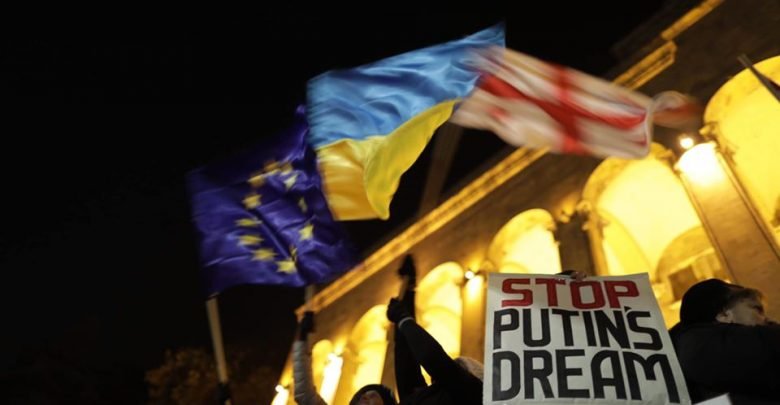
Georgia’s Ruling Party Rejects Parliamentary Session on Ukraine
The ruling Georgian Dream party is seemingly rejecting the extraordinary parliamentary session on Russia’s war against Ukraine, initiated by the opposition and OKed by President Salome Zurabishvili.
“At this stage, there is objectively no need to hold the session,” GD lawmaker Givi Mikanadze was quoted by media as saying.
“We are not going to participate in a show proposed by those people, that in two months after the 2008 August War blamed their own country and defense forces on launching the war and bombing Tskhinvali with cluster bombs, on Russia’s overt military aggression toward Ukraine,” said MP Mikanadze.
The lawmaker from the Georgian Dream party, which itself is known for controversial August War remarks and is the target of opposition’s accusations on appeasing Moscow, alluded to the October 2008 resolution in the Council of Europe.
The resolution, backed by then ruling UNM MPs, reads that “the initiation of shelling of Tskhinvali without warning by the Georgian military, on 7 August 2008, marked a new level of escalation, namely that of open and full-fledged warfare.”
Besides the ruling party, MP accused the opposition of being “a fifth column in Georgia since 2008 till today.”
He claimed the opposition aims to create a “provocative backdrop” in the country and wishes Georgia to “make emotional, rather than pragmatic decisions and make irremediable mistakes.”
“Our goal, on the contrary, is to pursue a pragmatic policy, protecting the security, national interests and the economy of our country,” MP Mikanadze said.
He argued holding the extraordinary session would serve the “populist and harmful aims of the United National Movement rather than supporting Ukraine.”
MP Mikanadze pointed out that the sitting thus cannot be held at all, as the opposition MPs alone cannot reach the necessary 76-member quorum to open the session.
The development comes as the GD government faces opposition criticism over its response to Russia’s invasion of Ukraine, as well as the escalation leading up to the development.
Previously the GD came under fire as it endorsed a resolution in support of Ukraine in early February, but fell short of explicitly mentioning Russia.
The resolution largely failed to garner the opposition support, as parties urged the GD to be vocal in denouncing Russia’s actions and claimed the governing party was appeasing Moscow.
Also Read:
- Georgian Parliament Adopts Resolution Supporting Ukraine, Omits ‘Russian Aggression’
- Georgian Parliament Turns into “Circus Show” Over Ukraine Resolution
This post is also available in: ქართული Русский